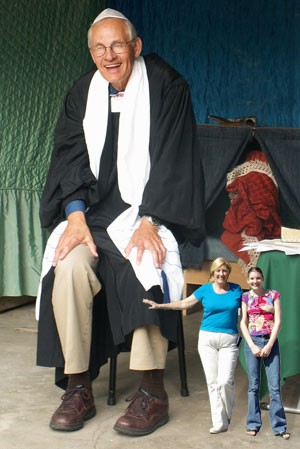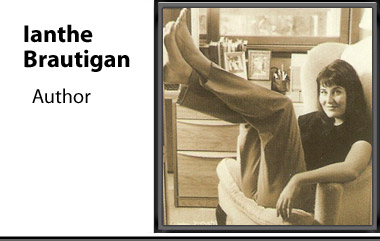Everybody’s always complaining about how people don’t read any more, right? Well, I have the solution, and I’m pretty sure it’s going to make me a million dollars.
The reason nobody’s reading any more is obvious — we love TV. And the solution’s just as obvious: a TV channel that shows books, one page at a time.
Imagine — the smart thinking you get from a book *plus* the brain-aesthesia you get from TV! I’m so excited, I’ve passed out twice while writing this. First, when I said I was going to make a million dollars. And then again when I woke up and I re-read that sentence about a million dollars. I’m gonna be rich!
There are lots of great “books on” ideas we should be exploring. I can’t tackle them all so I’ll put a few out there, and you can get rich too.
“Books on toasters,” for example. Why not? Or “books on telescopes.” You know, we put a book on the moon and then people will read it through a telescope.
If we can put a man on the moon, we can put a book on the moon. It just stands to reason!
Blog
-
Books on TV
-
Media outrage
Look, I don’t mind that there’s all this coverage of the Pope in the news. The Pope comes to America. It’s a big deal. I get it.
But it cheeses me off when scientists discover a 15-foot rabbi and nobody seems to give a damn.

Rabbi Arthur Rosenberg, of Holmdel New Jersey, is huge. -
This post: Not for children
I just saw the most disgusting thing on CNN. Wolf Blitzer says to his guest, “May I pick your brain for a moment?” And the guest says, “Sure.”
I’m sorry — I just got up and turned off the TV. Wolf Blitzer is a creepy creepy guy. -
“I’m makin’ pruno!”
is what this fellow shouts
at me and my chat-mate.
We’re sitting on a bench,
enjoying the East Bay sun.
He comes up to us
holding a black garbage bag.
He puts the bag down
next to us on the bench.
He was so happy.
There was something
moving in that bag.
He disappears into the coffee shop.
Then pops back out like a
hillbilly leprechaun.
Grabbing the bag he crows:
“I’m making pruno!”
He shakes our hands and
cackles down the street.
I’m telling you,
it almost made me want to
make some pruno.
******
note: I was delighted to find out later that pruno (pronounced “prune-o”) is a kind of homemade booze commonly associated with prison living. -
A thing that makes me mad
They named a drug
designed to help men urinate
“Flomax.”
(They really did.
They called it “Flomax.”
Can you
imagine the joy in
that room? “Flomax!”
“Oh my God — we’re going to
call it ‘Flomax!’ Somebody, do a trademark
search!”
“You’re incredible,
Dave.” “No Sally, you are
the incredible one. You came up with
the ‘max’ part!”)
It makes me so angry. They
named it “Flomax”
when they
could have
called it
“Niagra.” -
An Interview with Ianthe Brautigan

Photo credit: Nancy Bellen.
Ianthe Brautigan was born in San Francisco at the tail-end of the Beat Era. Her book You Can’t Catch Death: A Daughter’s Memoir (St. Martin’s Press, 2000), recently optioned for a movie, chronicles her life growing up as the daughter of poet and novelist Richard Brautigan and grappling with his suicide in 1984. Her work has appeared in Cartwheels on The Faultline, The Poet’s Eye: A Tribute to Lawrence Ferlinghetti, and Antioch Review, and will appear in Confrontations. She’s taught at Sonoma State University and lives in Northern California, where she’s currently working on a novel.
Ianthe Brautigan on the Web: Red Room, You Can’t Catch Death
Cecil Vortex: What sort of writing had you done before you started working on your memoir?
Ianthe Brautigan: I was actually a Theater Arts major, and I was going to the Junior College, and I fell in love with my English 1A class and ended up writing nonfiction essays. At that point I realized that I was going to be torn between the two worlds, and I decided to choose writing. I still went to New York and worked for Roundabout Theatre and was in the theater world and toyed with that for a little while. And then I came back to Sonoma County and really started writing in earnest and did all the things that writers do — I took creative writing courses and did workshops and worked with Robin Beeman, who’s in the county and is absolutely phenomenal. I got my undergrad in English Literature at Sonoma State, which was the best thing I could have ever done…. You need to read a lot of stuff and get an idea of what’s going on. Then I got my MFA at San Francisco State University, and I don’t recommend that for everybody.
Going back to my memoir, God, I had started that in the form of poetry right after my dad died. And I’m a terrible poet. But I wrote a prose poem and Don Emblen read it and he said, “You’re onto it — this is what you should be doing; stay away from that poetry stuff.” [laughter] And I began writing about my dad. And as you might imagine, it took a long time.
CV: Was the transition from short stories to poetry to memoir writing difficult, or did you feel like you were finding your natural genre?
IB: I think it’s important to try all sorts of stuff. I love writing short stories. I’ve written a novella. I think that in memoir and nonfiction writing, you’re using the craft of fiction writing. In fact, a lot of what makes, I think, a good memoir is that it has a lot of fictive elements, except it’s based on truth.
CV: Can you elaborate on that — how fiction-writing techniques can play a role in memoir writing? -
Nordic Sub Shop
He sounds surprised
at everything he says he’s
constantly surprising himself.
“Is there food somewhere around here?” is what I asked.
“There is?!” he self-flabbergasted. “Nordic Sub Shop — right next door?! Good food?!?”
Surprise, surprise, surprise. -
Prediction: Pain
If the ceasefire has fully unraveled by the Fall, let me be among the first to predict that the GOP will argue that “the insurgents want [insert Democrat nominee here] to win — they’re insurging to control our election. That’s how much they fear John McCain. And yes, a vote against John McCain is a vote for the terrorists.”
-
Dyngus among us
I’m so happy. The world is purring today. And I’ll tell you why: Dyngus Day.
-
Me and my metaphor
I have this recurring dream in which the brakes in my car give out. The shudder these dreams share is that moment when I’m pressing down but the car careens.
I’ve had this dream in various forms for probably twenty years or so. Not too often — every couple of months I’d guess. I had a version of it last night as one of my last late-dawn eye-flitters. The thing that struck me, as I yawned myself into the day, is that we’re hardwired for metaphor.
Our brains could operate in a much more literal fashion. We could fall asleep and a fast-talking phantom self could give us an eight-hour lecture on exactly what it is we hope for and what we fear. But instead we close our eyes and we generate these little poems for ourselves.
In my case, my brain seems to have found a metaphor it likes and it’s sticking with it. I suspect that the brakes meant one thing when I was twenty and they mean something a little different now that I’m two times twenty. But the image persists. Or maybe it’s been the same mortality song all along: “hey, wait — stop time!” And wouldn’t that be nice?
That sensation of soft brakes is so real, I find myself wondering if I ever owned a car that had this problem. Was there something wrong with the brakes on that strawberry-scented Chevy Impala I drove as a teenager? Or the gold Accord that carried me from New Jersey to the West Coast?
I don’t think so. These aren’t real brakes, after all. Just a poem I tell myself at night.